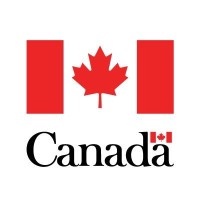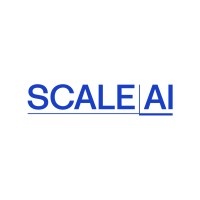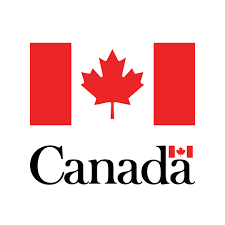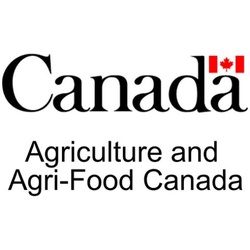
Innovative Solutions Canada — Zero emissions technologies for industrial process heating
At a glance
- Maximum amount : 1,500,000 $
- Open Date : July 18, 2024
- Closing date : September 5, 2024
- Manufacturing
- Canada
- For-profit business
- All revenue ranges
- 499 employees maximum
- Canadians
- Startups
Overview
The grant, sponsored by NRC and NRCan, aims to advance cost-effective, low-carbon alternatives for industrial process heating to significantly reduce greenhouse gas emissions. It supports R&D activities such as renewable energy integration, energy efficiency, and electrification, excluding hydrogen and biomass combustion technologies. Eligible activities span from proof of feasibility (TRL 1-4) to prototype development (TRL 5-9).
Activities funded
This grant targets initiatives aimed at reducing greenhouse gas emissions within industrial processes by developing and utilizing zero emissions technologies. Supported projects focus on technology integration for process heating applications beyond fossil fuel dependency.
- Development of technologies that integrate renewable energy to replace or reduce fossil-based industrial heat production.
- Implementation of energy recovery systems to curtail overall heat requirements in industrial processes.
- Adoption of non-combustion low-carbon technologies exceeding 1 MWt for industrial process heating.
- Application of advancements in electric heat systems, industrial-scale heat pumps, or solar thermal technologies.
- Research on alternative non-thermal technologies that eliminate or reduce the necessity for industrial heating.
- Development and application of innovative techniques to concentrate liquid products without thermal processes.
Eligibility
Eligibility for this grant is determined by specific requirements that applicants must meet.
- The applicant must be a for-profit small business.
- The business must be incorporated in Canada, either federally or provincially.
- The applicant must have 499 or fewer full-time equivalent (FTE) employees, including affiliated businesses.
- Research and development activities must take place in Canada.
- 50% or more of its annual wages, salaries, and fees must currently be paid to employees and contractors who primarily work in Canada, including those in affiliated businesses.
- 50% or more of its FTE employees must have Canada as their ordinary place of work, considering affiliated businesses.
- 50% or more of its senior executives (Vice President and above) must have Canada as their principal residence, inclusive of affiliated businesses.
Who is eligible?
This grant is available to small businesses incorporated within Canada that are engaged in innovation and R&D activities aimed at reducing greenhouse gas emissions in industrial processes. Eligible organizations have to meet the following criteria:
- For-profit small businesses.
- Incorporated in Canada, either federally or provincially.
- Employ 499 or fewer full-time equivalent employees.
- Conduct research and development activities within Canada.
- Pay 50% or more of their annual wages to employees and contractors working primarily in Canada.
- Have 50% or more of their senior executives residing principally in Canada.
- Proposals can only be submitted by businesses that fall within the specified TRL scale, applying to either Phase 1 (TRL 1-4) or Phase 2 (TRL 5-9), but not both.
Eligible expenses
This grant supports projects that aim to advance technological solutions for reducing greenhouse gas emissions in industrial processes. The eligible activities focus on innovative approaches to substitute fossil-fuel based industrial heating with sustainable technologies.
- Development of technologies, products, or process modifications that can replace or significantly reduce fossil-based industrial heat production.
- Projects focused on recovering industrial process heat to lower overall heating needs.
- Initiatives employing alternative non-thermal technologies to replace or diminish the necessity for industrial heat.
- Solutions that integrate low-carbon or net-zero emissions technology, excluding biomass and hydrogen combustion.
- Technological advancements applicable across multiple industries or processes.
- Projects aimed at ensuring environmental safety with minimal impact during implementation.
- Developments that maintain compliance with Canadian safety and certification standards under various environmental conditions.
- Technologies promising a low lifecycle carbon footprint suitable for Canadian industries.
Eligible geographic areas
This grant is available to small businesses incorporated in Canada. Eligible companies must be registered either federally or provincially to participate.
- Incorporated in Canada (federally)
- Incorporated in Canada (provincially)
Selection criteria
The evaluation and selection of projects for this grant are structured into two phases, each with mandatory criteria and point-rated criteria to ensure comprehensive assessment.
- Phase 1 - Mandatory Criteria Question 1a: Scope (Pass/Fail) - Relevance and compliance of innovation with the challenge and essential outcomes.
- Question 2: Current Technology Readiness Level (TRL) (Pass/Fail) - Validity of TRL from 1 to 4 with supporting R&D evidence.
- Question 3a: Innovation (Pass/Fail) - Proposal meets ISC's innovation definitions.
- Question 3b: Advance on State of the Art (Pass/Fail + Points) 0 points/Fail: No significant advancement over existing technologies.
- 5 points: Minor improvements that create potential competitive advantages.
- 12 points: Three minor improvements or one significant improvement creating competitive advantages.
- 20 points: Two or more significant improvements or setting a new benchmark.
- Phase 1 - Point-Rated Criteria Question 1b: Scope (0-10 points) - Addressing Additional Outcomes.
- Question 4: S&T Risks (0-10 points) - Identification and mitigation strategies.
- Question 5: Project Risks (0-10 points) - Identification and mitigation strategies.
- Question 6: Project Plan (0-20 points) - Feasibility and completeness of the Phase 1 plan.
- Question 7: Implementation Team (0-20 points) - Skill sets and experience.
- Question 8: Inclusivity (0-20 points) - Engagement of under-represented groups.
- Question 9: Financial Controls (0-10 points) - Oversight and management of funds.
- Question 10: Phase 2 Overview (0-10 points) - Outline of the development plan for Phase 2.
- Phase 2 - Mandatory Criteria Question 1a: Scope (Pass/Fail) - Relevance and compliance of innovation with the challenge and essential outcomes.
- Question 2: TRL (Pass/Fail) - Validity of TRL from 5 to 9 with supporting feasibility evidence.
- Question 3a: Innovation (Pass/Fail) - Proposal meets ISC's innovation definitions.
- Question 3b: Advance on State of the Art (Pass/Fail + Points) 0 points/Fail: No significant advancement over existing technologies.
- 5 points: Minor improvements that have potential competitive advantages.
- 12 points: Three minor improvements or one significant improvement creating competitive advantages.
- 20 points: Two or more significant improvements or setting a new benchmark.
- Phase 2 - Point-Rated Criteria Question 1b: Scope (0-10 points) - Addressing Additional Outcomes.
- Question 4: S&T Risks (0-10 points) - Identification and mitigation strategies.
- Question 5: Project Risks (0-10 points) - Identification and mitigation strategies.
- Question 6: Project Plan (0-20 points) - Feasibility and completeness of the Phase 2 plan.
- Question 7: Implementation Team (0-20 points) - Skill sets and experience.
- Question 8: Inclusivity (0-20 points) - Engagement of under-represented groups.
- Question 9: Financial Controls (0-10 points) - Oversight and management of funds.
- Question 10: Commercialization Strategy (0-10 points) - Plan to bring the solution to market.
How to apply
Preliminary Registration
- Create an account on the hosting platform to participate in the challenge.
- Log in to access the proposal submission form.
Prepare Proposal
- Identify whether your solution is suitable for Phase 1 (Proof of Feasibility) or Phase 2 (Prototype Development) based on the Technology Readiness Level (TRL) of your solution.
- Draft your proposal addressing all the mandatory criteria outlined for the selected phase, ensuring necessary evidence, innovation definitions, and advancements are well documented.
Submit Proposal
- Log in to the challenge platform and upload your completed proposal submission form.
- Ensure all criteria are met and submit the proposal before the deadline of September 5, 2024, 14:00 ET.
Confirmation of Submission
- Receive an automatic confirmation of your submission.
- Keep the confirmation for your records.
Await Feedback
Attend Meetings
Additional information
This grant from the NRC and NRCan focuses on promoting cost-effective, low-carbon technologies for industrial heating to reduce greenhouse gas emissions.
- Applicants can only apply to one Challenge Stream entry point (either Phase 1 or Phase 2).
- Phase 1 funding: maximum $200,000 CAD for up to 6 months with an estimated number of 3 grants.
- Phase 2 funding: maximum $1,500,000 CAD for up to 24 months with an estimated number of 1 grant.
- No travel is anticipated; all communications will be via telephone or videoconference.
- Eligibility criteria include being a small business incorporated in Canada with 499 or fewer full-time employees.
Contacts
Frequently Asked Questions about the Innovative Solutions Canada — Zero emissions technologies for industrial process heating Program
What is the Innovative Solutions Canada — Zero emissions technologies for industrial process heating?
How much funding can be received?
What is the deadline to apply?
Who is eligible for the Innovative Solutions Canada — Zero emissions technologies for industrial process heating program?
What expenses are eligible under Innovative Solutions Canada — Zero emissions technologies for industrial process heating?
Who can I contact for more information about the Innovative Solutions Canada — Zero emissions technologies for industrial process heating?
Where is the Innovative Solutions Canada — Zero emissions technologies for industrial process heating available?
More programs like this

Industrial Research Assistance Program (IRAP) – AI Assist
National Research Council Canada (NRC)
Clean Technology Manufacturing (CTM) Investment Tax Credit (ITC)
Canada Revenue Agency (CRA)
Strategic Innovation Fund (SIF)
Innovation, Science and Economic Development Canada (ISED)
AI-Powered Supply Chains Cluster (Scale AI)
Global Innovation Clusters (GIC)
Green Industrial Facilities and Manufacturing Program (GIFMP) — Industrial Facility Track
Natural Resources Canada (NRCan)
NRC IRAP – Support for clean technology
National Research Council Canada (NRC)
ISED — Artificial intelligence (AI)
Innovation, Science and Economic Development Canada (ISED)
Global Innovation Clusters
Innovation Canada
IP for Business
Canadian Intellectual Property Office (CIPO)